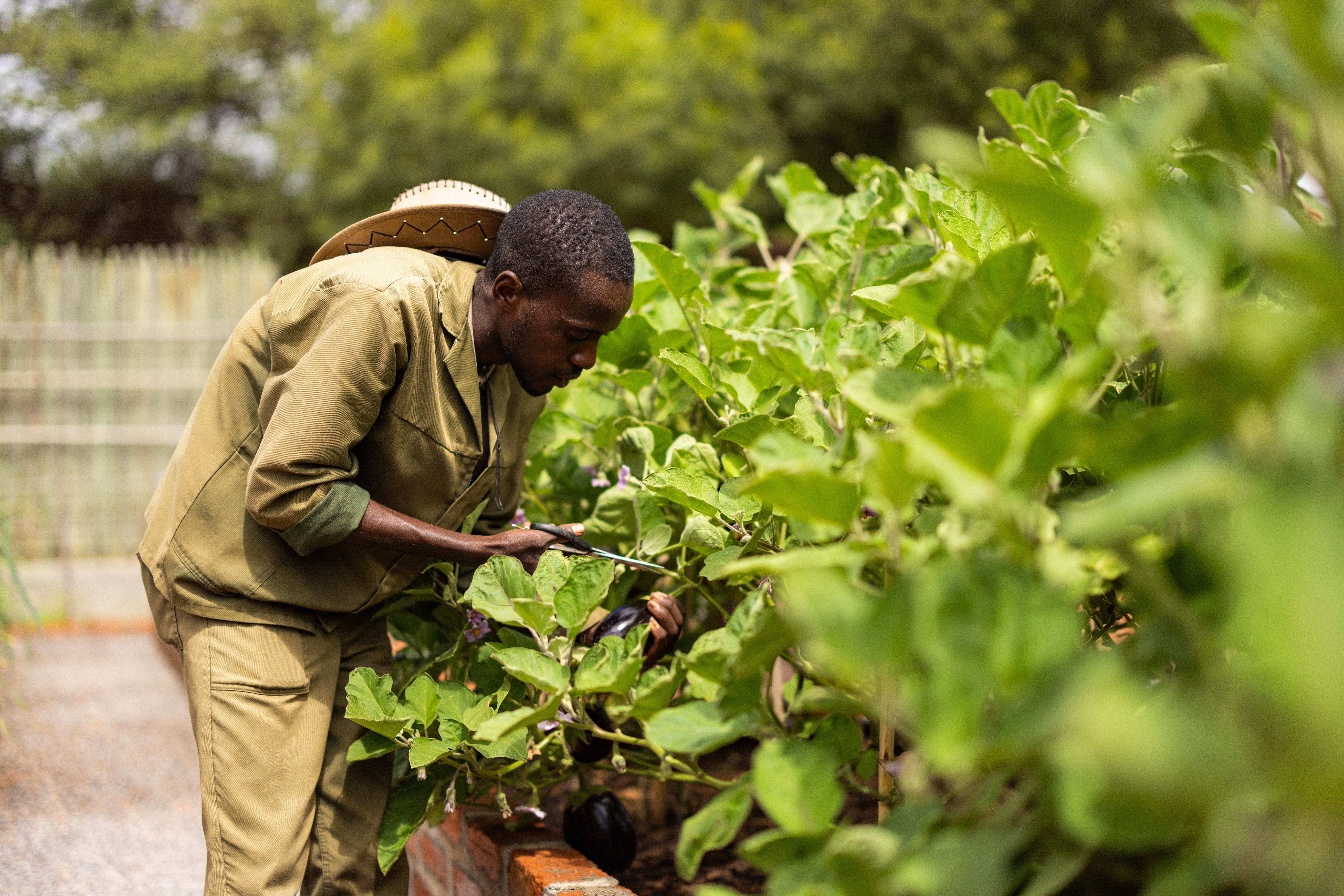Hunger is one of the most destabilizing forces in our interconnected world. It drives internal and external migration, fuels conflict, and undermines equality and economic participation. Conversely, when we address its root causes, we help improve global stability, prosperity, and resilience. As climate change and biodiversity loss accelerate, food security and nutrition have never been more critical. Stronger food systems underpin healthier and more resilient societies, enable economic growth and build foundations for international partnerships.
This is why World Food Day - held every October 16 – resonates with our work at FinDev Canada. This year’s theme, “Hand in hand for better food and a better future,” challenges us to consider how to invest in agriculture production, distribution and consumption to support long-term food security and economic development in emerging markets.
According to the FAO’s 2025 State of Food Insecurity, while food security has gradually improved since 2021, it still remains above pre-2015 levels. The world produces enough food to feed all 8 billion people, yet waste, inefficiencies, and inequities in access and distribution mean that 2.3 billion people are still food insecure. Disparities persist between regions and within countries: in 2024, about 32% of people living in rural areas were moderately or severely food insecure, and adult women faced higher rates of food insecurity than men in every region of the world. Meanwhile, smallholder farmers – who produce roughly 35% of the world’s food - are disproportionately exposed to climate volatility, trade disruptions, and inflation.
Supporting resilient food supply chains requires a multi-faceted approach across public and private sectors. Private sector investment plays a critical role in promoting sustainable agrifood systems. By providing capital and expertise, the private sector can help improve agricultural production, build resilient supply chains, and reduce food loss and waste. Yet investments in these sectors remain limited in developing countries: food-insecure countries receiving only 20% of global agricultural investment.
The Role of Development Finance
Development Finance Institutions (DFIs) are uniquely positioned to help bridge this financing gap. By taking risk and catalyzing private capital, DFIs can help reshape food systems for long-term resilience. Beyond capital deployment, DFIs also play a critical role in helping investors and businesses identify risks and opportunities – through sustainability frameworks, impact measurement tools and climate, nature, and gender assessments. These instruments support better decision-making and help align investments with long-term financial performance and development outcomes.
At FinDev Canada, we work through funds, companies, and financial institutions to extend capital and technical expertise across the agricultural supply chain.
Our investment strategy focuses on companies with the potential to strengthen access to markets, embed climate and nature considerations, and advance gender equality. We support this through financing and investments in climate-smart agriculture, resilient agri-food systems and nature-positive investments – both via funds and financial institutions, as well as directly with larger agricultural companies. FinDev Canada’s work seeks to balance productivity with ecosystem health, recognizing this tradeoff can carry risks if it excludes smallholders or reinforces dependency on technologies they cannot access.
That is why equity and inclusivity are central to our approach – so that smallholders, women, and rural communities are meaningfully included as agriculture becomes more digital and data-driven.
Building Resilience Through Long-Term Partnership
One example is FinDev Canada’s partnership with Export Trading Group (ETG), a leading agricultural trading company present in over 45 countries. Our relationship began in 2021 with a loan to support ETG’s operations. In 2023, we provided technical assistance to help ETG assess deforestation risks, as well as gender and social risks, across five key value chains. This baseline data collection exercise informed the structure of a landmark USD 394 million sustainability-linked loan signed in 2024, to which FinDev Canada contributed USD 75 million alongside FMO and TDB, the co-arrangers, as well as DEG, Proparco, ILX ,and other investors..
The loan includes ambitious sustainability targets, such as expanding extension services for smallholder farmers that support climate resilience, fertilizer application, post-harvest storage, digitization and financial literacy. These services already reach 360,000 smallholder farmers, with a goal of reaching one million by 2030. This is sustainable intensification in action: combining better production practices with inclusive, long-term impact.
Collaboration for Systemic Change
Climate-smart agricultural practices and nature-positive investments could unlock billions in annual income for farmers and generate long-term value across agri-food systems.
Launched in 2024 under Italy’s G7 leadership, the Collaborative on Sustainable Food Systems (“Collaborative”) brings together G7 DFIs and Public Development Banks to scale investments in food security across emerging markets and developing economies. In 2025, under Canada’s G7 presidency, FinDev Canada co-chairs the Collaborative alongside British Investment International (BII) and CassaDepositi e Prestiti (CDP).
The Collaborative acknowledges the climate-biodiversity-food nexus and brings together DFIs, governments, private investors, and multilateral partners. One of its first deliverables—supported by FinDev Canada—is the development of a shared DFI impact approach for financing food security and nutrition. This will include practical tools to identify, measure and track investments in food security, creating a common framework that strengthens accountability and private capital mobilisation.
We aim to increase investments that strengthen agri-food systems, reduce hunger, and build resilience where it is most urgently needed. The formal launch of the framework is set for early 2026.
World Food Day reminds us that food is more than sustenance – it is a foundation for dignity, stability, and opportunity. Investing in sustainable food systems is investing in a more resilient, equitable, and peaceful future.
